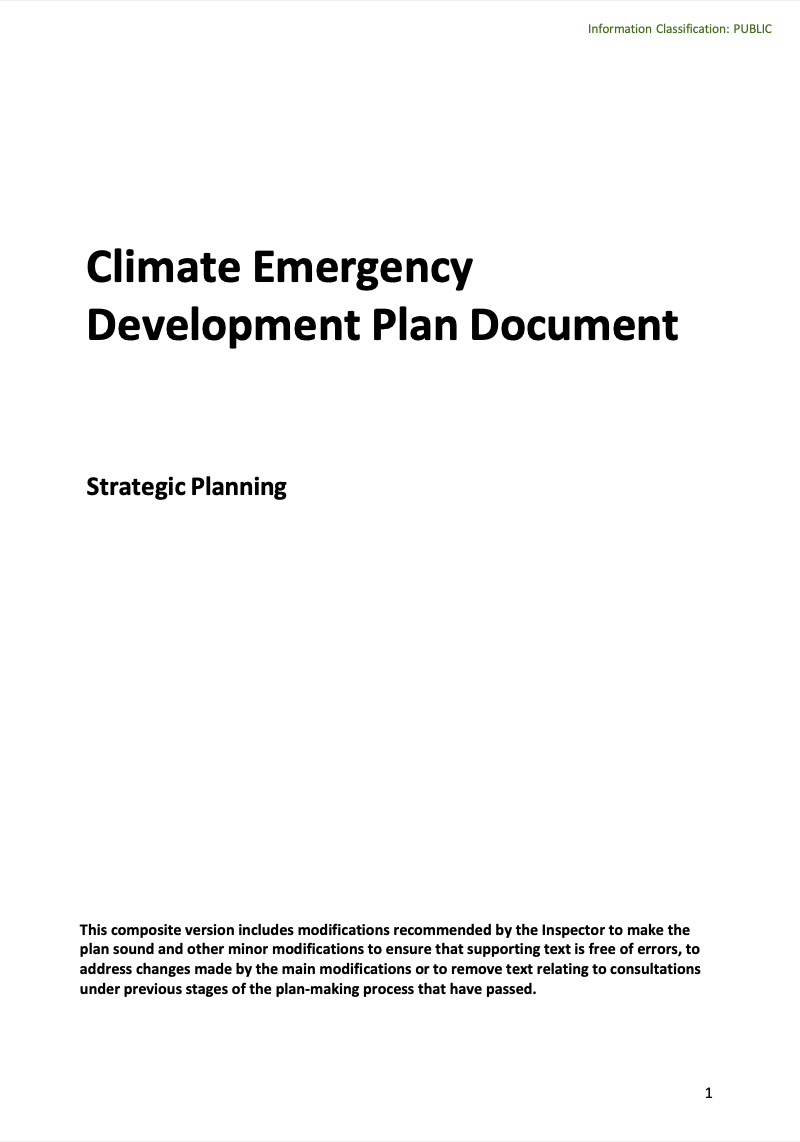Cornwall Council submitted the Climate Emergency DPD for independent examination in November 2021. This was required under (Town and Country Planning) (Local Development) (England) Regulations 2012).
Planning Inspector: P Griffiths BSc (Hons) BArch IHBC acted on behalf of the Secretary of State. He has now completed his examination and has made his report. His report confirms that the plan is sound subject to his recommended modifications. You can view or download a copy of the CEDPD Inspectors Report. and the Schedule of Main Modifications.
The plan can now proceed to adoption. A report will be made to Cabinet on 8 February and Cornwall Council for adoption on 21 February 2023. When adopted the new policies will support planning decisions.
You can view or download a copy of the Climate Emergency DPD showing the required modifications. This includes minor editorial changes to support the modifications.
The following document will be updated to reflect the Inspectors findings before adoption:
Following examination the Council has issued a Schedule of Modifications.
If you would like to discuss this document you can contact the team by emailing: climateemergencydpd@cornwall.gov.uk
by writing to:
Climate Emergency DPD Team
Cornwall Council
New County Hall
Treyew Road,
Truro
TR1 3AY
About the Climate Emergency DPD
Cornwall declared a climate emergency in 2019. Recognising that all services across the Council would have a part to play. New planning policies are a step towards improving Cornwall’s housing and infrastructure. Helping to plan for a Cornwall that our children and grandchildren can live, work and thrive in.
These Planning Policies impact the way that places grow and change. They will help to protect and shape the future of Cornwall. They add detail to the Cornwall Local Plan (2016). They aim to help address climate change, by expanding on and replacing some Local Plan policies. The aim is to address the impacts of climate change, sitting alongside Government legislation.
These policies make development more sustainable and are flexible to keep up with changes in technology.

